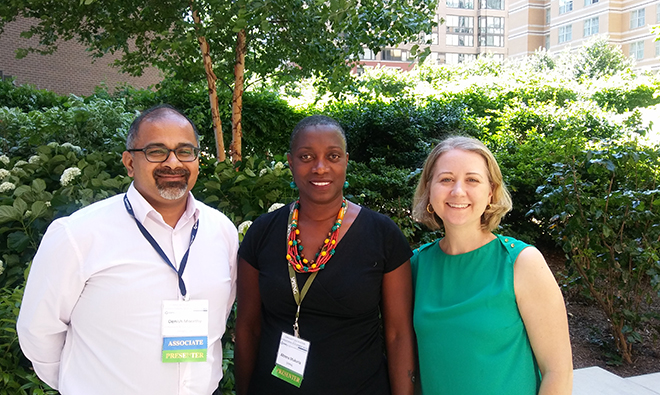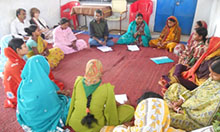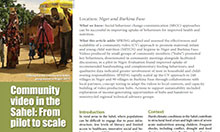
The CORE Group’s annual Global Health Practitioner Conference was held June 4th – 7th, 2018 in Bethesda, Maryland. This year, the conference was centered on the theme “Community Health Action for the Humanitarian-Development Nexus.” Three SPRING staff members attended the conference, with two of them delivering presentations on SPRING’s work and lessons learned.
Altrena Mukuria, Dr.P.H., Director of Country Initiatives, participated on a panel entitled: “Engaging Fathers, Grandmothers, and Other Family Members in Maternal and Child Nutrition – Lessons from Development for Humanitarian Contexts”. Her presentation described the role of women's empowerment in the agriculture to nutrition pathway and how SPRING's approach varied contextually in three West African countries; Ghana; Niger, and Senegal. Not only did Dr. Mukuria compare and contrast the three distinct approaches (support groups, home visits, community video) to engage fathers in nutrition but also described the variety of tools (community video, counseling cards, gender training used.
Dr. Denish Moorthy, who heads SPRING’s anemia prevention team, took an innovative approach to disseminating his study of hemoglobin variation from data collected in 11 studies from 7 countries. During the “90-second science” session, Dr. Moorthy presented the study results using a spoken word format, set to the beat of "Cabinet Battle #1" from the popular musical, Hamilton. The study findings were: (i) hemoglobin measured on capillary blood on a HemoCue machine shows a lesser value when compared to when it is measured on venous blood in an autoanalyzer but when venous blood was measured on either the HemoCue or an autoanalyzer, the former reported a higher reading; (ii) Among children under two years reported lower hemoglobin levels as compared to children aged 2-5 years; and, (iii) Trend analysis suggest that blood collection technique, age, and sample collection site are major contributor to variability. Dr. Moorthy's presentation can be viewed here.


